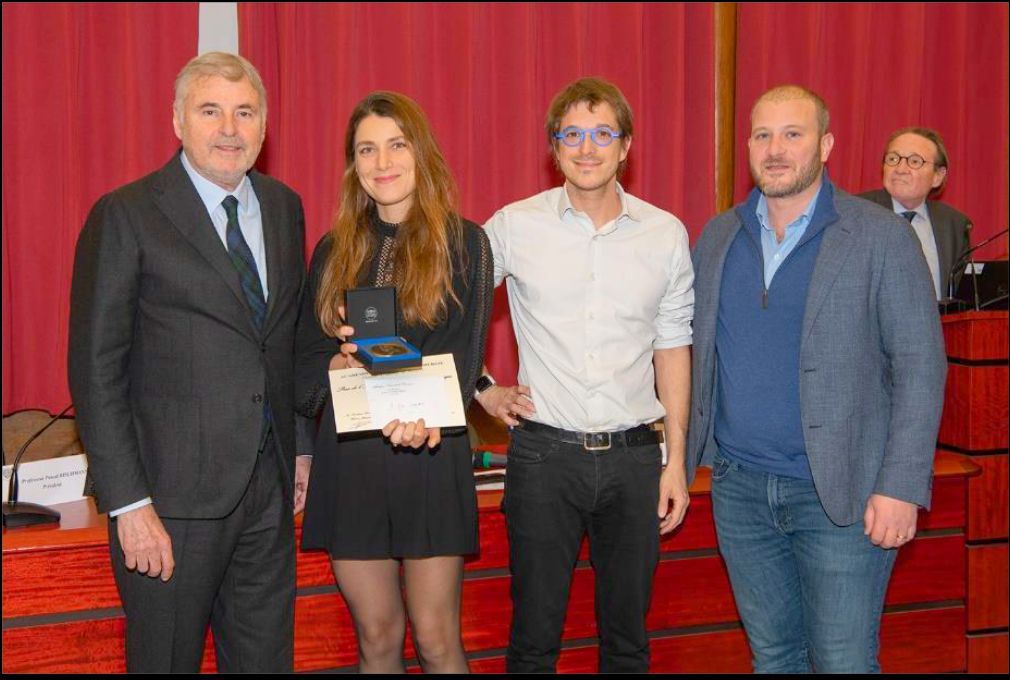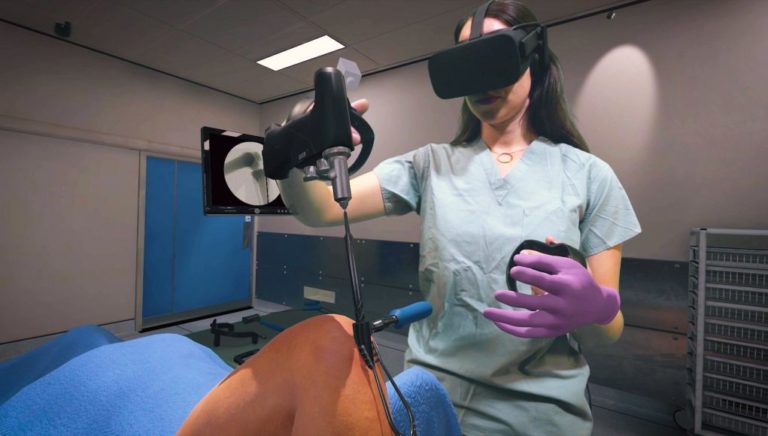Source: CNRS Sciences Informatiques
As part of her Master 2 in surgical sciences, Eya Jaafar, supervised by Ignacio Avellino, CNRS research fellow at ISIR, and Professor Geoffroy Canlorbe (AP-HP – Sorbonne University), studied the impact of immersive video via virtual reality headsets on surgical learning.
Traditional surgical training is largely carried out on a “hands-on” basis. Nevertheless, access to the operating theatre can be limited, and as a result, interns’ first experiences are likely to be difficult. The operating room experience can be both physically and emotionally demanding due to its strict protocols, sometimes leading to a lack of clarity in learning objectives, as well as feelings of fear, anxiety and intimidation among novices.
To train surgeons, new technologies such as virtual reality can be used to improve trainees’ anatomical knowledge, technical skills and dexterity, by viewing content in immersive environments. The use of this technology for simulation has proven benefits, and video viewing, another use of virtual reality, can also improve understanding of procedures and the acquisition of surgical skills. These two uses are complementary, and video stands out because it visualizes real surgical procedures rather than simulations. As more and more immersive virtual reality video visualization tools come onto the market, Eya Jafaar, as part of her Master 2 in Surgical Sciences, supervised by Ignacio Avellino, CNRS research fellow at ISIR and Professor Geoffroy Canlorbe (AP-HP – Sorbonne University), sought to identify the benefits of these tools for learning. For this study, Eya Jafaar was awarded the Surgery 2023 Pedagogical Innovation Prize.
In this study, the student investigated not only the learning benefits of immersion viewing, but also the learner characteristics that influence this contribution: she wanted to understand why some people benefit more or less from immersion. 231 4th-year medical students were randomly divided into two groups and watched a Caesarean section lecture on a “conventional” screen and by “immersion”. Before starting the experiment, the scientists gave the participants a mental rotation test to assess their visuo-spatial ability, i.e. their capacity to mentally manipulate figures represented in two or three dimensions.
The study shows that immersion is disadvantageous for immediate knowledge retention, as it can have a distracting effect. Nevertheless, it helps prepare students for their first experience in the operating theatre. Participants trained using virtual reality felt better prepared, more confident, more at ease and less overwhelmed by information.
The study also revealed a positive relationship between visuo-spatial ability and knowledge retention. The negative effect of immersion can thus disappear when learners have high visuo-spatial skills (i.e., when they are good at representing objects in space).

Scientific contact at ISIR: Ignacio Avellino, CNRS Research Associate
Published on 23rd January 2024.



